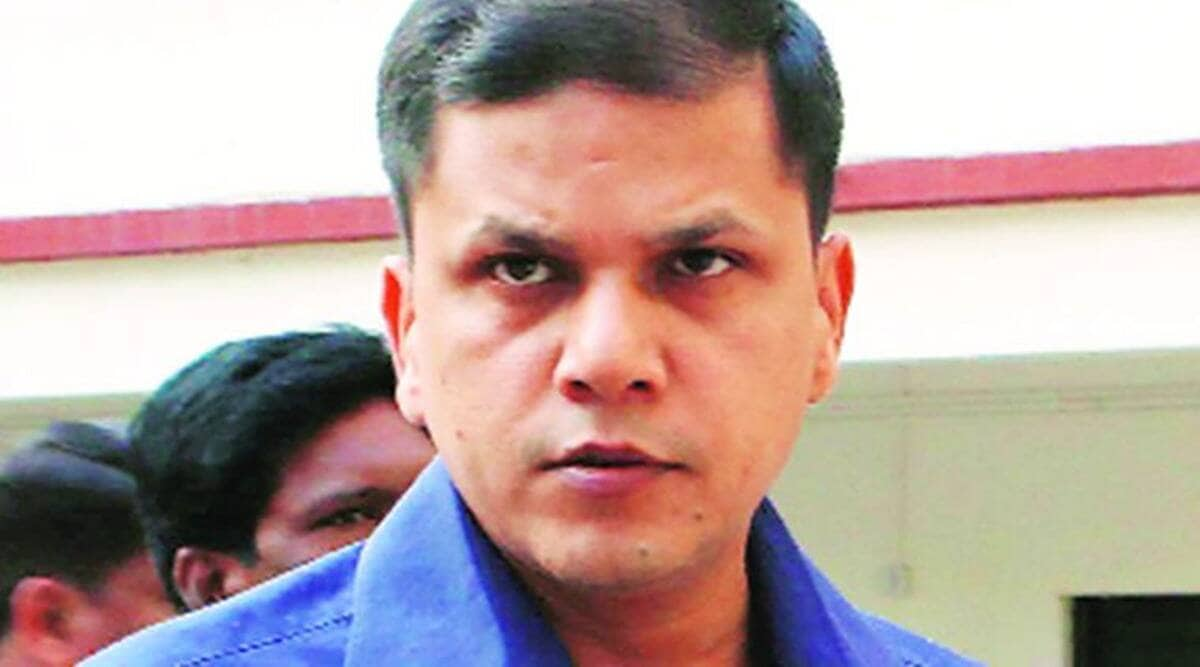 Pune Divisional Commissioner Saurabh Rao.
Pune Divisional Commissioner Saurabh Rao.IAS OFFICER Saurabh Rao, currently the divisional commissioner of Pune, deposed as a witness before the Koregaon Bhima Commission of Inquiry on Monday. The two-member commission, headed by retired judge Justice J N Patel, is probing the causes of violence in Koregaon Bhima area on January 1, 2018, which claimed one life and left many others injured.
Rao was the collector of Pune district when the violence had broken out. He had filed an affidavit before the commission, mainly about the preparations made by the district administration for the January 1 event at ‘Jaystambh’ on the occasion of the 200th anniversary of the Battle of Koregaon Bhima. Lakhs of members from Ambedkarite Dalit communities had visited the site to mark the occasion.
Advocate Aashish Satpute, the lawyer for the commission, recorded Rao’s chief examination. He was then cross-examined by advocate B G Bansode, who is representing a Dalit witness.
Rao said he was the collector of Pune district from February 14, 2014 to April 17, 2018, and was responsible for maintaining law and order. He said “the problem of law and order arose in the matter of Koregaon Bhima” because of a “controversial board” at the “Samadhi Sthal of Govind Gopal Mahar” in Vadhu Budruk village on December 29, 2017.
Best of Express Premium
Rao said he was briefed about the incident (at Vadhu Budruk, located about 4 km from Koregaon Bhima) and the steps taken by police in restoring law and order by Suvez Haque, the then superintendent of Pune Rural Police, on December 30, 2017.
Vadhu Budruk is known for the samadhi of Chhatrapati Sambhaji Maharaj. The village also has a disputed tomb-like structure, which, according to the Dalit Mahar community, is the samadhi of Govind Gopal Dhegoji Meghoji, a 17th century figure revered by the community.
Marathas from the village believe it was their ancestors, the Shivale Deshmukhs, who defied the orders of Aurangzeb and performed the last rites of Sambhaji Maharaj after he was killed by the Mughal emperor in 1689. The Dalit Mahar community, however, claims that Govind Gopal performed the last rites of the king.
The Gaikwad family from the village claims to be successors of Govind Gopal.
A board with the ‘disputed history’ of Govind Gopal was put up in Vadhu Budruk on the intervening night of December 28 and 29, 2017. The board was removed by certain persons, mainly from the Maratha community, which led to an altercation that was seen as one of the triggering factors that led to the violence in Koregaon Bhima two days later.
A case was lodged with Pune Rural Police against some members of the Gaikwad family and a few activists who allegedly played a role in putting up the disputed board. An FIR was also lodged against 49 persons under the Scheduled Caste & Scheduled Tribe (Prevention of Atrocities) Act.
During cross-examination, Rao said he had never visited the samadhi of Govind Gopal, but was aware of it. Rao said he got to know about the disturbance in Koregaon Bhima from Suvez Haque, the then SP, at around 2 pm on January 1, 2018. Asked about steps he took after that, Rao said he spoke to the director general of police regarding deployment of additional force.
Advocate Bansode, however, claimed that district authorities failed to deploy sufficient force. Rao denied this, saying “…due to our vigilant deployment of sufficient force, we could prevent a major untoward incident…”.
Citing intelligence reports, Bansode alleged that Rao did not take preventive action against Hindutva leader Milind Ekbote, right-wing organisations and political parties which had opposed the Elgaar Parishad held at Shaniwar Wada on December 31, 2017, and “conspiracy” to create disturbance, so that the incident on January 1, 2018, could have been avoided.
Rao claimed that necessary preventive steps were taken after receiving a report from Haque on December 30, 2017.
Bansode also questioned Rao regarding the possession of Jaystambh, a military monument at Perne village in Pune district, erected by the British government in 1821 in memory of its soldiers who fought against the Peshwas or Maratha forces at Battle of Koregaon Bhima on January 1, 1818. Britishers had appointed Khandojibin Gajoji Jamadar — a soldier from the British Army who had fought in this battle — as the in-charge of Jaystambh.
His descendant, Captain (honorary) Balasaheb Jamadar, a retired junior commissioned officer of the Indian Army, is fighting a legal battle against the Maharashtra government regarding ownership and possession of the land.
Balasaheb was also summoned by the commission to depose on Monday. He told the commission that he will not appear for cross-examination due to the ongoing dispute before the civil court.
- The Indian Express website has been rated GREEN for its credibility and trustworthiness by Newsguard, a global service that rates news sources for their journalistic standards.

